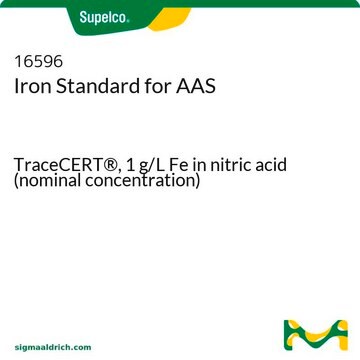374598
Cetyltrimethylammonium hydrogensulfate
99%
Synonym(s):
CTAHSO4, Hexadecyltrimethylammonium hydrogen sulfate
About This Item
Recommended Products
Assay
99%
mp
250-260 °C (dec.) (lit.)
SMILES string
OS([O-])(=O)=O.CCCCCCCCCCCCCCCC[N+](C)(C)C
InChI
1S/C19H42N.H2O4S/c1-5-6-7-8-9-10-11-12-13-14-15-16-17-18-19-20(2,3)4;1-5(2,3)4/h5-19H2,1-4H3;(H2,1,2,3,4)/q+1;/p-1
InChI key
UCRJJNVFJGKYQT-UHFFFAOYSA-M
Looking for similar products? Visit Product Comparison Guide
Application
Some of the applications include:
- Rhodium(I)-catalyzed asymmetric hydrogenation of (Z)-methyl-α-acetamidocinnamate.
- Asymmetric palladium-catalyzed alkylation of 1,3-diphenyl-2-propenyl acetate with dimethyl malonate.
Storage Class Code
11 - Combustible Solids
WGK
WGK 3
Flash Point(F)
Not applicable
Flash Point(C)
Not applicable
Personal Protective Equipment
Certificates of Analysis (COA)
Search for Certificates of Analysis (COA) by entering the products Lot/Batch Number. Lot and Batch Numbers can be found on a product’s label following the words ‘Lot’ or ‘Batch’.
Already Own This Product?
Find documentation for the products that you have recently purchased in the Document Library.
Customers Also Viewed
Our team of scientists has experience in all areas of research including Life Science, Material Science, Chemical Synthesis, Chromatography, Analytical and many others.
Contact Technical Service









